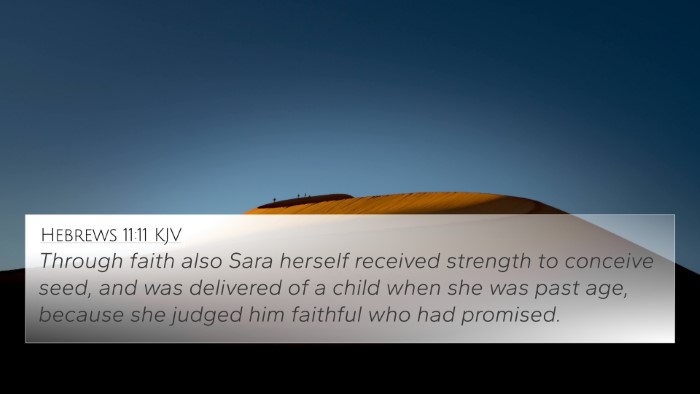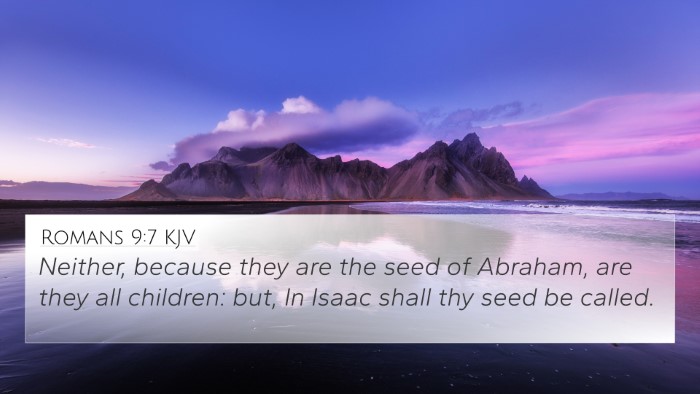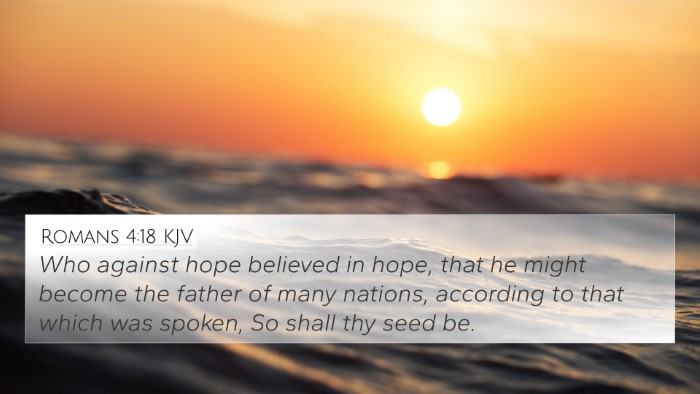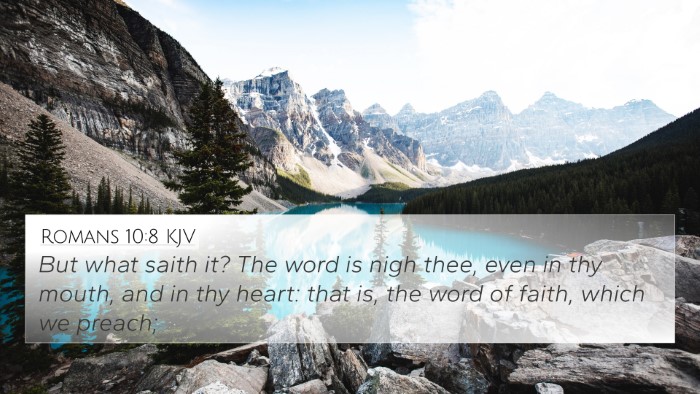Understanding Galatians 4:23
Galatians 4:23 states: "But he who was of the bondwoman was born after the flesh; but he of the freewoman was by promise." This verse draws a vivid contrast between two significant figures in scriptural history, highlighting the deeper theological implications of law and grace.
Interpretative Summary
This verse encapsulates the contrasting nature of the offspring of two women: Hagar, the slave, and Sarah, the freewoman. Here we explore the meanings derived from prominent biblical commentaries, offering insights into the nature of their representations.
Key Insights from Commentaries
-
Matthew Henry:
Henry emphasizes the allegorical significance of these two figures, pointing out that Hagar and Sarah represent two covenants. Hagar signifies the covenant of law, reliant on human effort, while Sarah embodies the covenant of grace, based on God’s promise.
-
Albert Barnes:
Barnes underscores that the distinction made in Galatians 4:23 is foundational to Pauline theology. He discusses how being born of the bondwoman indicates a life lived in bondage to the law, contrasting the freedom found in being born of the promise through Sarah.
-
Adam Clarke:
Clarke elaborates on the implications of ‘born after the flesh,’ tying it to the idea of natural, earthly desires versus spiritual rebirth. He asserts that the children of promise, like Isaac, are not born of mere physicality but through divine intervention.
Cross-Referencing Biblical Texts
This verse is interconnected with various other scripture passages, enhancing the understanding of the dynamics between the flesh and the promise. Below are some key cross-references:
- Genesis 16:4: The account of Hagar giving birth to Ishmael, illustrating the tension of human attempts versus divine plans.
- Genesis 21:1-3: The birth of Isaac, fulfilling God's promise to Abraham and Sarah, showing the effectiveness of God's covenant.
- Romans 9:8: This verse likens children of God to those of the promise rather than the flesh, echoing the themes presented in Galatians.
- Hebrews 11:11: Highlighting Sarah’s faith, which was pivotal in bringing forth Isaac, thus linking faith and promise.
- Galatians 4:30: Further emphasizes the need to cast out the bondwoman and her son, asserting the definitive choice of freedom over bondage.
- John 8:34-36: Jesus speaks of freedom from sin; here, bondage signifies spiritual enslavement contrasted with the liberating nature of faith.
- 2 Corinthians 1:20: Illustrates that all promises of God find their "Yes" in Christ, connecting back to the promise made to Sarah.
Thematic Connections
When examining Galatians 4:23 in light of interconnected scripture, several themes emerge:
- Law vs. Grace: The distinction between the covenant of law (Hagar) and the covenant of grace (Sarah).
- Faith and Works: The dichotomy presents the contrast between a life lived by human effort and one characterized by faith in God’s promise.
- Spiritual Freedom: The call to embrace the freedom granted through faith, prevalent throughout Paul's letters.
How to Use Bible Cross-References
Utilizing cross-references in studying scripture can significantly deepen understanding. Here are some tools and methods:
-
Bible Concordance:
A valuable tool for locating verses and their themes.
-
Bible Cross-Reference Guide:
Use this to find related verses, enhancing thematic studies.
-
Cross-Referencing Bible Study Methods:
Employ approaches such as thematic studies or verse-by-verse analysis to uncover deeper meanings.
Conclusion
In summary, Galatians 4:23 illustrates the profound theological truths regarding the nature of God's promises and the believers' identity. By understanding the contrasts between the bondwoman and the freewoman, and employing tools for Bible cross-referencing, believers can gain a richer understanding of scripture's message and its implications for faith and spiritual freedom.










